Matin cholérique

Matin cholérique
Matin cholérique – Marco Valdo M.I. – 2010
Cycle du Cahier ligné – 96
Matin cholérique est la nonante-sixième chanson du Cycle du Cahier ligné, constitué d'éléments tirés du Quaderno a Cancelli de Carlo Levi.
Encore une fois, mon ami Marco Valdo M.I., je trouve le titre de la canzone bien étrange. Mais il doit bien avoir à voir avec son contenu. Laisse-moi deviner... Comme il s'agit d'une canzone léviane, qu'elle fait partie du cycle du Cahier ligné, dès lors, il s'agit d'un moment de la méditation de notre ami le prisonnier-blessé. Ce moment est clairement dit : c'est le matin. Où je comprends moins bien, c'est cet adjectif qui s'y accole : cholérique. Il ne s'agit évidemment pas de la colère, mais du choléra, cette maladie souvent mortelle et en tous cas, porteuse de fièvres terribles.
Eh bien, Lucien l'âne mon ami, c'est exactement çà. Ton raisonnement est parfait.... (Continues)
Matin cholérique – Marco Valdo M.I. – 2010
Cycle du Cahier ligné – 96
Matin cholérique est la nonante-sixième chanson du Cycle du Cahier ligné, constitué d'éléments tirés du Quaderno a Cancelli de Carlo Levi.
Encore une fois, mon ami Marco Valdo M.I., je trouve le titre de la canzone bien étrange. Mais il doit bien avoir à voir avec son contenu. Laisse-moi deviner... Comme il s'agit d'une canzone léviane, qu'elle fait partie du cycle du Cahier ligné, dès lors, il s'agit d'un moment de la méditation de notre ami le prisonnier-blessé. Ce moment est clairement dit : c'est le matin. Où je comprends moins bien, c'est cet adjectif qui s'y accole : cholérique. Il ne s'agit évidemment pas de la colère, mais du choléra, cette maladie souvent mortelle et en tous cas, porteuse de fièvres terribles.
Eh bien, Lucien l'âne mon ami, c'est exactement çà. Ton raisonnement est parfait.... (Continues)
En un lieu maintenant familier
(Continues)
(Continues)
Contributed by Marco Valdo M.I. 2010/3/10 - 17:25
27 de Noviembre

(J. Martí, S. González)
Cadáveres amados los que un día
(Continues)
(Continues)
Contributed by DonQuijote82 2010/3/9 - 18:05
Which Side Are You On?
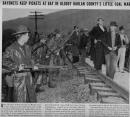
Apprendo dalle note che accompagnano il disco "Talking Union and Other Union Songs", con Pete Seeger, The Almanac Singers e The Song Swappers (Folkways Records, 1955) che la seguente strofa di questa canzone:
"My daddy was a miner,
And I'm a miner's son,
And I'll stick with the union
'Til every battle's won."
è da attribuirsi ad una modifica ad opera degli Almanac Singers.
La strofa originaria della Reece era la seguente:
"My daddy was a miner;
he's now in the air and sun
He'll be with you, fellow workers,
until this battle's won."
dove "in the air and sun" significa che il minatore non era in galleria ma disoccupato perchè "blacklisted" dai padroni a causa del suo attivismo sindacale...
"My daddy was a miner,
And I'm a miner's son,
And I'll stick with the union
'Til every battle's won."
è da attribuirsi ad una modifica ad opera degli Almanac Singers.
La strofa originaria della Reece era la seguente:
"My daddy was a miner;
he's now in the air and sun
He'll be with you, fellow workers,
until this battle's won."
dove "in the air and sun" significa che il minatore non era in galleria ma disoccupato perchè "blacklisted" dai padroni a causa del suo attivismo sindacale...
Alessandro 2010/3/9 - 14:04
General De Gaulle
Anonymous
[1962]
Album “Songs of F.L.N. - Freedom Fighters of Algeria” (sung in arabic), Folkways Records.
Canzone satirica contro la Francia ed il suo presidente-generale, la cui linea di condotta rispetto alla questione algerina fu incomprensibile, fra strizzate d’occhio ai pied-noirs, negoziati segreti per una transizione pacifica verso l’indipendenza e feroci repressioni, salvo poi doversi arrendere all’evidenza della storia…
Album “Songs of F.L.N. - Freedom Fighters of Algeria” (sung in arabic), Folkways Records.
Canzone satirica contro la Francia ed il suo presidente-generale, la cui linea di condotta rispetto alla questione algerina fu incomprensibile, fra strizzate d’occhio ai pied-noirs, negoziati segreti per una transizione pacifica verso l’indipendenza e feroci repressioni, salvo poi doversi arrendere all’evidenza della storia…
A tree walks in the streets
(Continues)
(Continues)
Contributed by Alessandro 2010/3/9 - 11:19
Song Itineraries:
The Algerian War
Story of Today

[1962]
Album “Songs of F.L.N. - Freedom Fighters of Algeria” (sung in arabic), Folkways Records.
Testo e musica di Farid Ali (1919-1981), poeta, musicista e combattente algerino, originario della Cabilia. Infatti il testo era originariamente in cabilo, uno dei dialetti berberi parlati in Algeria.
Album “Songs of F.L.N. - Freedom Fighters of Algeria” (sung in arabic), Folkways Records.
Testo e musica di Farid Ali (1919-1981), poeta, musicista e combattente algerino, originario della Cabilia. Infatti il testo era originariamente in cabilo, uno dei dialetti berberi parlati in Algeria.
Listen to this story,
(Continues)
(Continues)
Contributed by Alessandro 2010/3/8 - 15:42
Song Itineraries:
The Algerian War
Hymn Of Underground
Anonymous

[1962]
Album “Songs of F.L.N. - Freedom Fighters of Algeria” (sung in arabic), Folkways Records.
Testo e musica di autore anonimo.
Eseguita da un coro di combattenti dell’F.L.N., il Fronte di Liberazione algerino.
Cantata in arabo, ma sul libretto che accompagna il disco c’è solo la traduzione in inglese… ci accontentiamo?
“It is the most famous hymn between partisan troupe, which became so important that was used as opening theme by the programs broadcasted by the "voice of Algerian Republic".
[nota introduttiva al brano dal libretto che accompagna l’album]
Album “Songs of F.L.N. - Freedom Fighters of Algeria” (sung in arabic), Folkways Records.
Testo e musica di autore anonimo.
Eseguita da un coro di combattenti dell’F.L.N., il Fronte di Liberazione algerino.
Cantata in arabo, ma sul libretto che accompagna il disco c’è solo la traduzione in inglese… ci accontentiamo?
“It is the most famous hymn between partisan troupe, which became so important that was used as opening theme by the programs broadcasted by the "voice of Algerian Republic".
[nota introduttiva al brano dal libretto che accompagna l’album]
We swear on misfortunes and destruction
(Continues)
(Continues)
Contributed by Alessandro 2010/3/8 - 14:45
Song Itineraries:
The Algerian War
La ballata delle donne
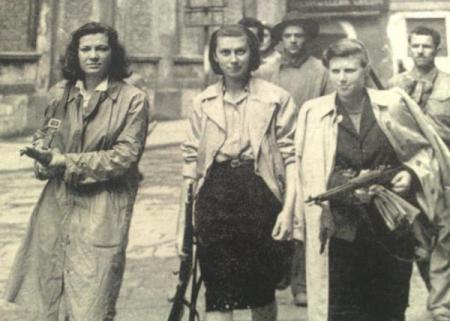
[1985]
Versi di Edoardo Sanguineti (1930-2010), nella raccolta “Il gatto lupesco. Poesie 1982-2001”, 2002.
Musica di Massimiliano D'Ambrosio da "Novembre" (2012)
Messa in musica anche da Margot Galante Garrone, nel suo album “Il vespero vermiglio” del 2013.
Una poesia-canzone composta da Sanguineti nel 1985, in occasione di un evento al quale erano presenti donne che avevano partecipato alla Resistenza.
(Bernart Bartleby)
Versi di Edoardo Sanguineti (1930-2010), nella raccolta “Il gatto lupesco. Poesie 1982-2001”, 2002.
Musica di Massimiliano D'Ambrosio da "Novembre" (2012)
Messa in musica anche da Margot Galante Garrone, nel suo album “Il vespero vermiglio” del 2013.
Una poesia-canzone composta da Sanguineti nel 1985, in occasione di un evento al quale erano presenti donne che avevano partecipato alla Resistenza.
(Bernart Bartleby)
Quando ci penso, che il tempo è passato,
(Continues)
(Continues)
2010/3/8 - 14:07
Song Itineraries:
Resistance against Nazi-Fascism in Italy and Europe
Free the Land
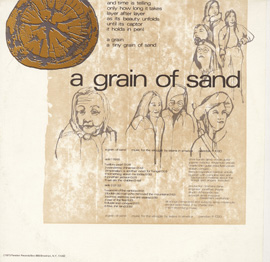
[1973]
Album “A Grain of Sand: Music for the Struggle by Asians in America”, Paredon Records.
Con Chris Kando Iijima, Joanne Nobuko Miyamoto e "Charlie" Chin.
Prodotto da Barbara Dane
“This song was written for a friend, sister Ibidun, and for a nation, the Republic of New Africa.
They say "free the land," as it captures a key concept in their struggle: land and sovereignty for blacks within the U.S. But we see this phrase as significant for all people who have worked and struggled in, and been oppressed by, this country. The land must be freed so that those who live and work on it will live in freedom. We will win! In the name of Malcolm, free the land…”
[nota introduttiva al brano dal libretto che accompagna l’album]
Diversamente da quanto può apparire dall’introduzione, questa canzone non è dedicata alla lotta dei neri sudafricani contro l’apartheid ma alla Republic of New Afrika... (Continues)
Album “A Grain of Sand: Music for the Struggle by Asians in America”, Paredon Records.
Con Chris Kando Iijima, Joanne Nobuko Miyamoto e "Charlie" Chin.
Prodotto da Barbara Dane
“This song was written for a friend, sister Ibidun, and for a nation, the Republic of New Africa.
They say "free the land," as it captures a key concept in their struggle: land and sovereignty for blacks within the U.S. But we see this phrase as significant for all people who have worked and struggled in, and been oppressed by, this country. The land must be freed so that those who live and work on it will live in freedom. We will win! In the name of Malcolm, free the land…”
[nota introduttiva al brano dal libretto che accompagna l’album]
Diversamente da quanto può apparire dall’introduzione, questa canzone non è dedicata alla lotta dei neri sudafricani contro l’apartheid ma alla Republic of New Afrika... (Continues)
Free the land
(Continues)
(Continues)
Contributed by Alessandro 2010/3/8 - 13:57
Divide and Conquer

[1973]
Album “A Grain of Sand: Music for the Struggle by Asians in America”, Paredon Records.
Con Chris Kando Iijima, Joanne Nobuko Miyamoto e "Charlie" Chin.
Prodotto da Barbara Dane
“The tactic of dividing the people in order to conquer them is a tactic which capitalism has used in this country very effectively. It has not only kept different races apart, it has kept sexes, religions, ages, occupations, just about everything divided. People have been taught we must compete against one another, and that we threaten each others interests. It has even affected us personally in feelings of alienation from each other and ourselves, so that we are isolated and alone. We are not alone - our interests are the same as all people fighting against the common oppressor. Our struggle for unity is a critical struggle, and it is vital for victory.”
[nota introduttiva al brano dal libretto che accompagna l’album]
Album “A Grain of Sand: Music for the Struggle by Asians in America”, Paredon Records.
Con Chris Kando Iijima, Joanne Nobuko Miyamoto e "Charlie" Chin.
Prodotto da Barbara Dane
“The tactic of dividing the people in order to conquer them is a tactic which capitalism has used in this country very effectively. It has not only kept different races apart, it has kept sexes, religions, ages, occupations, just about everything divided. People have been taught we must compete against one another, and that we threaten each others interests. It has even affected us personally in feelings of alienation from each other and ourselves, so that we are isolated and alone. We are not alone - our interests are the same as all people fighting against the common oppressor. Our struggle for unity is a critical struggle, and it is vital for victory.”
[nota introduttiva al brano dal libretto che accompagna l’album]
Have you ever woken,
(Continues)
(Continues)
Contributed by Alessandro 2010/3/8 - 13:35
War of the Flea

[1973]
Album “A Grain of Sand: Music for the Struggle by Asians in America”, Paredon Records.
Con Chris Kando Iijima, Joanne Nobuko Miyamoto e "Charlie" Chin.
Prodotto da Barbara Dane
Una canzone dedicata alla lotta di liberazione vietnamita.
“People's war has shown that small, oppressed nations can defeat the most highly technological military machine in the world - the U.S. This song is a celebration of that truth and to those who have shown us, in the belly of the monster, that truth.”
[nota introduttiva al brano dal libretto che accompagna l’album]
Album “A Grain of Sand: Music for the Struggle by Asians in America”, Paredon Records.
Con Chris Kando Iijima, Joanne Nobuko Miyamoto e "Charlie" Chin.
Prodotto da Barbara Dane
Una canzone dedicata alla lotta di liberazione vietnamita.
“People's war has shown that small, oppressed nations can defeat the most highly technological military machine in the world - the U.S. This song is a celebration of that truth and to those who have shown us, in the belly of the monster, that truth.”
[nota introduttiva al brano dal libretto che accompagna l’album]
Song of the night,
(Continues)
(Continues)
Contributed by Alessandro 2010/3/8 - 13:27
Warriors Of The Rainbow
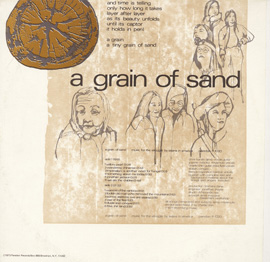
[1973]
Album “A Grain of Sand: Music for the Struggle by Asians in America”, Paredon Records.
Con Chris Kando Iijima, Joanne Nobuko Miyamoto e "Charlie" Chin.
Prodotto da Barbara Dane
“In Chicago in the summer of 1970, we met with some Indian brothers and sisters who were squatting for decent housing for their people. They told us of an old Indian legend (we don‘t know which nation it came from). The legend said that for 5.000 years the world would be ruled by evil followed by 5.000 years of good, that change would be brought about with the coming together of warriors of all colors of the rainbow, and that the time for that change is now…”
[nota introduttiva al brano dal libretto che accompagna l’album]
Quella dei “guerrieri dell’arcobaleno” è una profezia dei nativi americani appartenenti alla nazione Hopi, Arizona, ma leggende simili sono riscontrabili anche tra Cree e Cherokee. Il... (Continues)
Album “A Grain of Sand: Music for the Struggle by Asians in America”, Paredon Records.
Con Chris Kando Iijima, Joanne Nobuko Miyamoto e "Charlie" Chin.
Prodotto da Barbara Dane
“In Chicago in the summer of 1970, we met with some Indian brothers and sisters who were squatting for decent housing for their people. They told us of an old Indian legend (we don‘t know which nation it came from). The legend said that for 5.000 years the world would be ruled by evil followed by 5.000 years of good, that change would be brought about with the coming together of warriors of all colors of the rainbow, and that the time for that change is now…”
[nota introduttiva al brano dal libretto che accompagna l’album]
Quella dei “guerrieri dell’arcobaleno” è una profezia dei nativi americani appartenenti alla nazione Hopi, Arizona, ma leggende simili sono riscontrabili anche tra Cree e Cherokee. Il... (Continues)
Rain storm, winds blow
(Continues)
(Continues)
Contributed by Alessandro 2010/3/8 - 13:17
We Are The Children

[1973]
Album “A Grain of Sand: Music for the Struggle by Asians in America”, Paredon Records.
Con Chris Kando Iijima, Joanne Nobuko Miyamoto e "Charlie" Chin.
Prodotto da Barbara Dane
“This is another another first songs we wrote. It only touched on our people's plight and experiences in this country. We've heard that sisters and brothers in Hawaii and other places have added verses to it. We say right on -- it is your song.”
[nota introduttiva al brano dal libretto che accompagna l’album]
Album “A Grain of Sand: Music for the Struggle by Asians in America”, Paredon Records.
Con Chris Kando Iijima, Joanne Nobuko Miyamoto e "Charlie" Chin.
Prodotto da Barbara Dane
“This is another another first songs we wrote. It only touched on our people's plight and experiences in this country. We've heard that sisters and brothers in Hawaii and other places have added verses to it. We say right on -- it is your song.”
[nota introduttiva al brano dal libretto che accompagna l’album]
We are the children of the migrant worker
(Continues)
(Continues)
Contributed by Alessandro 2010/3/8 - 12:51
Il mio onore
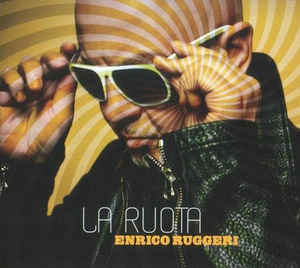
dall'album "La Ruota", 2010
Finalista Voci per la libertà 2011
(DonQuijote82)
(DonQuijote82)
Lungo strade di confine
(Continues)
(Continues)
Contributed by Silvia 2010/3/8 - 12:24
Jonathan Jackson

[1973]
Album “A Grain of Sand: Music for the Struggle by Asians in America”, Paredon Records.
Con Chris Kando Iijima, Joanne Nobuko Miyamoto e "Charlie" Chin.
Prodotto da Barbara Dane
“When we hear about revolutionary heroes like Jonathan Jackson (who was shot at San Marin Courthouse trying to free his brother George), we tend to put them into some superhuman category. What we want to say is that Jonathan Jackson, like Nguyen Van Trol, like Che Guevara, was first a human being like us; a human being with feelings, joys, and fears, and that we all have that revolutionary potential. Jonathan Jackson is not separate from us, but part of us and what he stood for, is us.”
[nota introduttiva al brano dal libretto che accompagna l’album]
Sui fratelli Jackson si vedano anche George Jackson e Uncle George.
Album “A Grain of Sand: Music for the Struggle by Asians in America”, Paredon Records.
Con Chris Kando Iijima, Joanne Nobuko Miyamoto e "Charlie" Chin.
Prodotto da Barbara Dane
“When we hear about revolutionary heroes like Jonathan Jackson (who was shot at San Marin Courthouse trying to free his brother George), we tend to put them into some superhuman category. What we want to say is that Jonathan Jackson, like Nguyen Van Trol, like Che Guevara, was first a human being like us; a human being with feelings, joys, and fears, and that we all have that revolutionary potential. Jonathan Jackson is not separate from us, but part of us and what he stood for, is us.”
[nota introduttiva al brano dal libretto che accompagna l’album]
Sui fratelli Jackson si vedano anche George Jackson e Uncle George.
Never met a man who said
(Continues)
(Continues)
Contributed by Alessandro 2010/3/8 - 12:09
Imperialism Is Another Word For Hunger

[1973]
Album “A Grain of Sand: Music for the Struggle by Asians in America”, Paredon Records.
Con Chris Kando Iijima, Joanne Nobuko Miyamoto e "Charlie" Chin.
Prodotto da Barbara Dane
“As the struggle against U.S. imperialism around the world intensifies, our task here is to give the people in America a better understanding and fuller awareness of what U.S. Imperialism is, what it does, and what we must do to combat it. Our purpose in writing “imperialism" was two-fold; One, to help break down the "mystique" of words like imperialism which the governments propaganda has injected into the minds of the people -- to equate imperialism with everyday concepts so people feel more at ease with hearing it and talking about it; two, to help us break down our own dependence on rhetoric so that we may better be able to communicate with those we are trying to serve.
Obviously, that is a tall order... (Continues)
Album “A Grain of Sand: Music for the Struggle by Asians in America”, Paredon Records.
Con Chris Kando Iijima, Joanne Nobuko Miyamoto e "Charlie" Chin.
Prodotto da Barbara Dane
“As the struggle against U.S. imperialism around the world intensifies, our task here is to give the people in America a better understanding and fuller awareness of what U.S. Imperialism is, what it does, and what we must do to combat it. Our purpose in writing “imperialism" was two-fold; One, to help break down the "mystique" of words like imperialism which the governments propaganda has injected into the minds of the people -- to equate imperialism with everyday concepts so people feel more at ease with hearing it and talking about it; two, to help us break down our own dependence on rhetoric so that we may better be able to communicate with those we are trying to serve.
Obviously, that is a tall order... (Continues)
It's just another word for hunger,
(Continues)
(Continues)
Contributed by Alessandro 2010/3/8 - 11:49
Vitti na crozza

salve mi permetto di intervenire perchè ho una opinione sulla canzone /ballata popolare diversa ma logica.
ho letto molti interventi che condannano l'inserimento
del tra lla llero.
non concordo è la parte più bella della canzone
se è un falso è fatto benissimo
credo che tutti i frequentatori di questo sito internet
sanno che le canzoni di protesta potevano essere veicolate
solo se divulgate in modo mascherato è la storia della musica (cito il film riso amaro) cioè tutti gli studiosi di musica popolare conoscono queste tecniche penso alla capoera brasiliana alla musica popolare italiana è normale
aggingere (se di aggiunta si tratta)un trallà 'llero
anzi bilancia il brano che diventa quasi dark viceversa sarebbe (musicalmente con rispetto)lagnoso.grazie
enrico
ho letto molti interventi che condannano l'inserimento
del tra lla llero.
non concordo è la parte più bella della canzone
se è un falso è fatto benissimo
credo che tutti i frequentatori di questo sito internet
sanno che le canzoni di protesta potevano essere veicolate
solo se divulgate in modo mascherato è la storia della musica (cito il film riso amaro) cioè tutti gli studiosi di musica popolare conoscono queste tecniche penso alla capoera brasiliana alla musica popolare italiana è normale
aggingere (se di aggiunta si tratta)un trallà 'llero
anzi bilancia il brano che diventa quasi dark viceversa sarebbe (musicalmente con rispetto)lagnoso.grazie
enrico
2010/3/8 - 09:26
Pasionaria

Dedicata a Dolores Ibárruri
Sí, veremos a Dolores caminar
(Continues)
(Continues)
Contributed by Marco e adriana 2010/3/7 - 20:04
April 29, 1992 (Miami)

La canzone trae spunto da un fatto di cronaca: la rivolta di Los Angeles, allargatasi poi a macchia d'olio in tutti gli Stati Uniti, a seguito del barbaro pestaggio di alcuni poliziotti ai danni del tassista nero Rodney King. La canzone elenca inoltre tutte le città statunitensi in cui sono avvenute le rivolte.
I don't know if you can,
(Continues)
(Continues)
Contributed by Jack SSSR 2010/3/7 - 16:41
Operai invisibili

Una canzone dedicata agli operai invisibili della Thyssen
Nella fabbrica dei ragazzi, linea cinque doppio turno
(Continues)
(Continues)
Contributed by adriana 2010/3/7 - 15:53
Song Itineraries:
The War of Labour: Emigration, Immigration, Exploitation, Slavery
Bagna caoda argentina

[2006]
Album:Il falò
Testo e musica di Enrico Claudio Avataneo
Album:Il falò
Testo e musica di Enrico Claudio Avataneo
Il figlio di conquistadores narrò di un vecchio in quella terra lontana:
(Continues)
(Continues)
Contributed by adriana 2010/3/7 - 14:10
Song Itineraries:
The War of Labour: Emigration, Immigration, Exploitation, Slavery
Matto
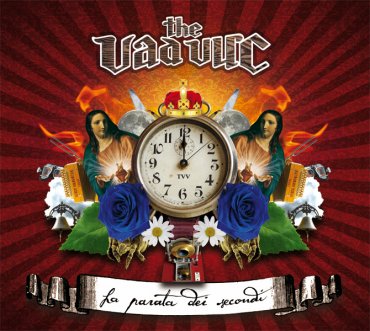
Dall'album La parata dei secondi
Il Matto è un re che non capisce
(Continues)
(Continues)
Contributed by DonQuijote82 2010/3/7 - 12:36
Copperhead Road
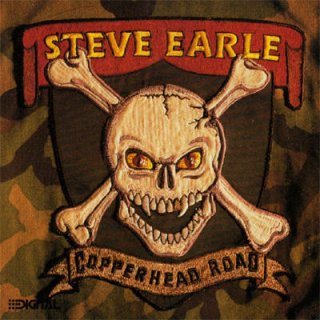
[1988]
Lyrics & Music by Steve Earle
Album: Copperhead Road
"John Lee Pettimore is, of course, a fictitious character: he is the son and grandson of moonshiners who goes off to Vietnam and, upon his return, becomes a marijuana cultivator and salesman..."
Lyrics & Music by Steve Earle
Album: Copperhead Road
"John Lee Pettimore is, of course, a fictitious character: he is the son and grandson of moonshiners who goes off to Vietnam and, upon his return, becomes a marijuana cultivator and salesman..."
Well, my name's John Lee Pettimore
(Continues)
(Continues)
Contributed by giorgio 2010/3/7 - 11:38
A Message To The World
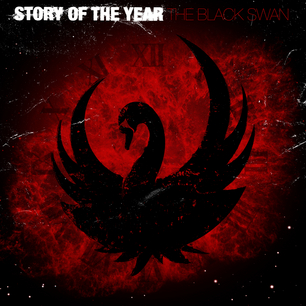
[2008]
Album: The Black Swan
Songwriters: Daniel Marsala, Ryan Phillips, Adam Russell, Phillip Sneed, Joshua Wills.
Album: The Black Swan
Songwriters: Daniel Marsala, Ryan Phillips, Adam Russell, Phillip Sneed, Joshua Wills.
Another world collides - will we open the door
(Continues)
(Continues)
Contributed by giorgio 2010/3/7 - 08:34
For The Greater Good Of God
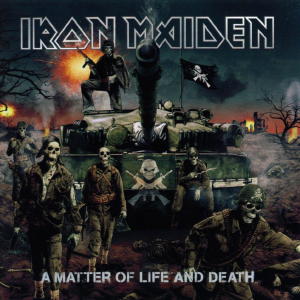
[2006]
Lyrics & Music by Steven Harris
Album: A Matter of Life and Death
Lyrics & Music by Steven Harris
Album: A Matter of Life and Death
Are you a man of peace or a man of holy war?
(Continues)
(Continues)
Contributed by giorgio 2010/3/7 - 08:29
Il mio nome è mai più
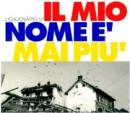
volevo lasciare un commento alla canzone di parodia e al cantante "sei un coglione,xkè la canzone originale è bellissima e le parole sono stupende e nn ci si può scrivere cazzate sopra" ciao a tutti!!!=)
2010/3/6 - 23:22
Sam Stone [There's A Hole In Daddy's Arm]
![Sam Stone [There's A Hole In Daddy's Arm]](img/thumb/c804_130x140.jpeg?1328565360)
Non mi piace perchè è molto triste!!Ho pianto tantissimissimissimissimissssssiiiiiimiiiiissssiiimmmee volte!!Baci a chi ci guarda!!!Grazie Socorro!!
2010/3/6 - 16:43
Il feroce monarchico Bava o Inno del sangue
Anonymous

Chanson italienne – Il feroce monarchico Bava – Anonyme – 1898
« La sanglante répression des émeutes milanaises de 1898 valut au général Bava Becaris la croix de Grand Officier de l'Ordre Militaire de Savoie. Le style du texte laisse entendre que l'(auteur anonyme était de bonne culture bourgeoise et maîtrisait le langage littéraire de l'époque. Sur la même ligne mélodique fut écrite la Ballata del Pinelli après la mort mystérieuse de l'anarchiste jeté par une fenêtre de la Préfecture de Milan au cours de l'enquête sur l'attentat de la Piazza Fontana de décembre 1969 ».
La chanson, écrite suite aux faits de Milan et connue sous le titre « Le féroce monarchiste Bava », est habituellement classée parmi les hymnes socialistes. Il existe cependant une copie manuscrite, confisquée à l'anarchiste Luigi Fabbri durant les arrêts domiciliaires, où l'on trouve non seulement le titre original « L'Hymne du Sang » - mais aussi le couplet et trois strophes manquantes....
Voir aussi : Gaetano, gracié et pendu
La chanson, écrite suite aux faits de Milan et connue sous le titre « Le féroce monarchiste Bava », est habituellement classée parmi les hymnes socialistes. Il existe cependant une copie manuscrite, confisquée à l'anarchiste Luigi Fabbri durant les arrêts domiciliaires, où l'on trouve non seulement le titre original « L'Hymne du Sang » - mais aussi le couplet et trois strophes manquantes....
Voir aussi : Gaetano, gracié et pendu
LE FÉROCE MONARCHISTE BAVA – L'HYMNE DU SANG
(Continues)
(Continues)
Contributed by Marco Valdo M.I. 2010/3/6 - 15:28
Deer Dance
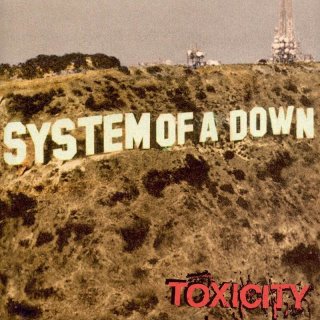
[2001]
Lyrics by Serj Tankian and Daron Malakian
Music by Daron Malakian
Album: Toxicity
Lyrics by Serj Tankian and Daron Malakian
Music by Daron Malakian
Album: Toxicity
Circumventing circuses lamenting in protest - to visible police
(Continues)
(Continues)
Contributed by giorgio 2010/3/6 - 12:13
Compulsory Hero
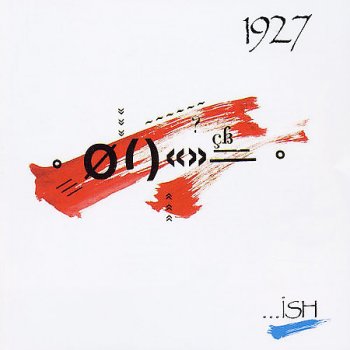
[1988]
Lyrics & Music by William and Garry Frost and Eric Weideman
Album: ...ish
Lyrics & Music by William and Garry Frost and Eric Weideman
Album: ...ish
Remember the times when we were kids
(Continues)
(Continues)
Contributed by giorgio 2010/3/6 - 09:32
Rifacciamo il muro di Berlino

Chanson italienne – Rifacciamo il muro di Berlino – Francesco Baccini - 1993
REFAISONS LE MUR DE BERLIN
(Continues)
(Continues)
Contributed by Marco Valdo M.I. 2010/3/5 - 13:58
Le hibou et les chouettes de la rue Ghibellina

Le hibou et les chouettes de la rue Ghibellina
Le hibou et les chouettes de la via Ghibellina – Marco Valdo M.I. – 2010
Cycle du Cahier ligné – 95
Le hibou et les chouettes de la via Ghibellina est la nonante-cinquième chanson du Cycle du Cahier ligné, constitué d'éléments tirés du Quaderno a Cancelli de Carlo Levi.
Salut, Marco Valdo M.I. mon ami, le titre de ta canzone de ce jour est un des plus mystérieux que j'ai connus. Et pourtant, il y en a eus et des curieux. Qu'est-ce que c'est que cette histoire d'oiseaux et que viennent-ils faire dans l'histoire que raconte notre ami le prisonnier-enfermé-blessé... J'aimerais bien que tu m'expliques un peu les choses.
Vois-tu, Lucien l'âne mon ami, dans cette canzone, tout tourne autour des Murate, l'ancienne prison de Florence, qui était située via Ghibellina; le hibou Graziadio personnifie, Carlo Levi – de son vrai nom : Graziadio Carlo... (Continues)
Le hibou et les chouettes de la via Ghibellina – Marco Valdo M.I. – 2010
Cycle du Cahier ligné – 95
Le hibou et les chouettes de la via Ghibellina est la nonante-cinquième chanson du Cycle du Cahier ligné, constitué d'éléments tirés du Quaderno a Cancelli de Carlo Levi.
Salut, Marco Valdo M.I. mon ami, le titre de ta canzone de ce jour est un des plus mystérieux que j'ai connus. Et pourtant, il y en a eus et des curieux. Qu'est-ce que c'est que cette histoire d'oiseaux et que viennent-ils faire dans l'histoire que raconte notre ami le prisonnier-enfermé-blessé... J'aimerais bien que tu m'expliques un peu les choses.
Vois-tu, Lucien l'âne mon ami, dans cette canzone, tout tourne autour des Murate, l'ancienne prison de Florence, qui était située via Ghibellina; le hibou Graziadio personnifie, Carlo Levi – de son vrai nom : Graziadio Carlo... (Continues)
Regard d'archange aux iris bleus
(Continues)
(Continues)
Contributed by Marco Valdo M.I. 2010/3/4 - 18:03
Masters Of War
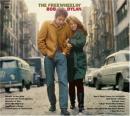
ITALIANO / ITALIAN [7] - Andrea Buriani
Versione in italiano di Andrea Buriani.
Questo brano si può ascoltare in MP3 su Maggie's Farm
Versione in italiano di Andrea Buriani.
Questo brano si può ascoltare in MP3 su Maggie's Farm
SIGNORI DELLA GUERRA
(Continues)
(Continues)
Contributed by Andrea BURIANI 2010/3/4 - 14:54
Fiaba grande
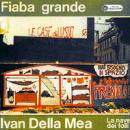
Chanson italienne – Grande Fiaba – Ivan Della Mea – 1975
Tu sais Lucien, il y a traducteur et traducteur, traduction et traduction... La traduction peut être, selon comment on la regarde ou on la fait, un compte-rendu, une adaptation, une version, un devoir, une obligation, un travail stipendié, un loisir, un artisanat, un art, une œuvre, une nécessité poétique, une manie... Et va-t-en savoir quoi d'autre encore et ce qu'est celle que je fais ici... Je dirais volontiers qu'elle relève du plaisir de faire et de la nécessité vitale – vue du côté de l'opérateur que je suis. C'est une manière d'explorer le monde de la chanson, c'est une manière de rencontrer les auteurs, les poètes d'autres cultures : ici, Ivan Della Mea – à propos de champs et de fleurs. C'est aussi une manière de manier sa propre langue, la mienne, celle qui me fait vivre et penser et là, Descartes, contre tout, a raison... (Continues)
Tu sais Lucien, il y a traducteur et traducteur, traduction et traduction... La traduction peut être, selon comment on la regarde ou on la fait, un compte-rendu, une adaptation, une version, un devoir, une obligation, un travail stipendié, un loisir, un artisanat, un art, une œuvre, une nécessité poétique, une manie... Et va-t-en savoir quoi d'autre encore et ce qu'est celle que je fais ici... Je dirais volontiers qu'elle relève du plaisir de faire et de la nécessité vitale – vue du côté de l'opérateur que je suis. C'est une manière d'explorer le monde de la chanson, c'est une manière de rencontrer les auteurs, les poètes d'autres cultures : ici, Ivan Della Mea – à propos de champs et de fleurs. C'est aussi une manière de manier sa propre langue, la mienne, celle qui me fait vivre et penser et là, Descartes, contre tout, a raison... (Continues)
GRANDE FABLE
(Continues)
(Continues)
Contributed by Marco Valdo M.I. 2010/3/4 - 14:51
×
![]()


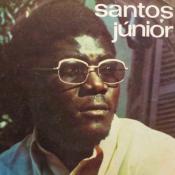





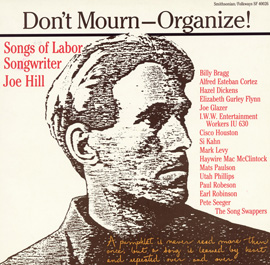





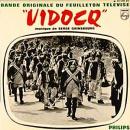

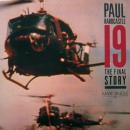
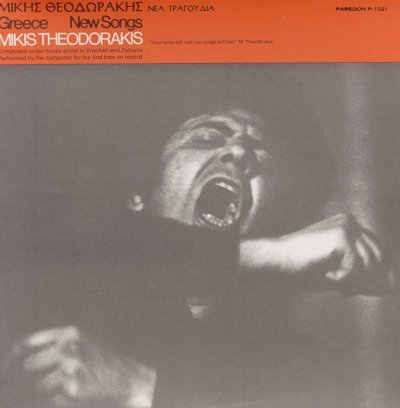
Un mondo bello che ormai non c'è più.
Un grazie alla mia Mamma che me l'ha sempre cantata.
Mi ha commosso rileggerla.